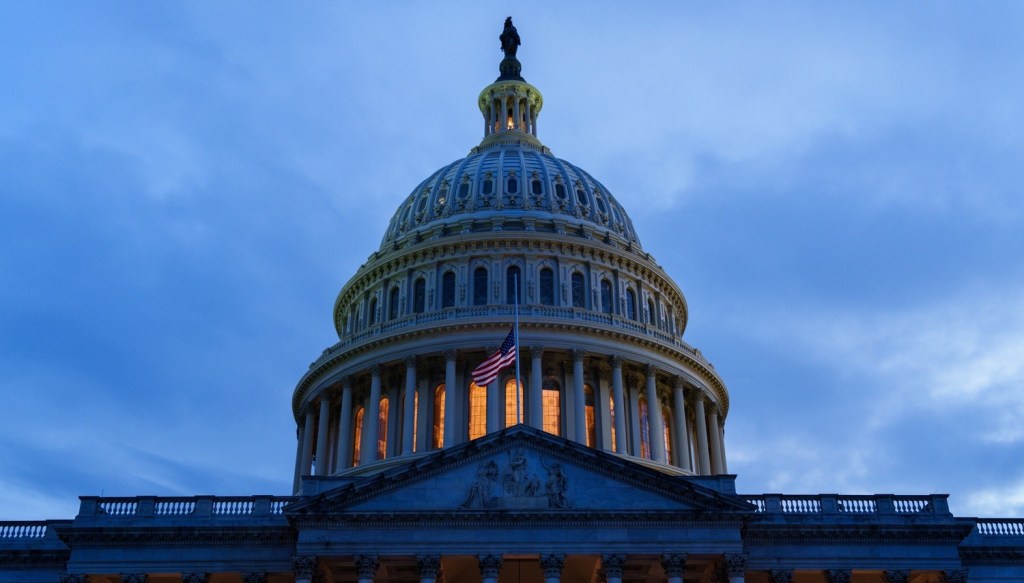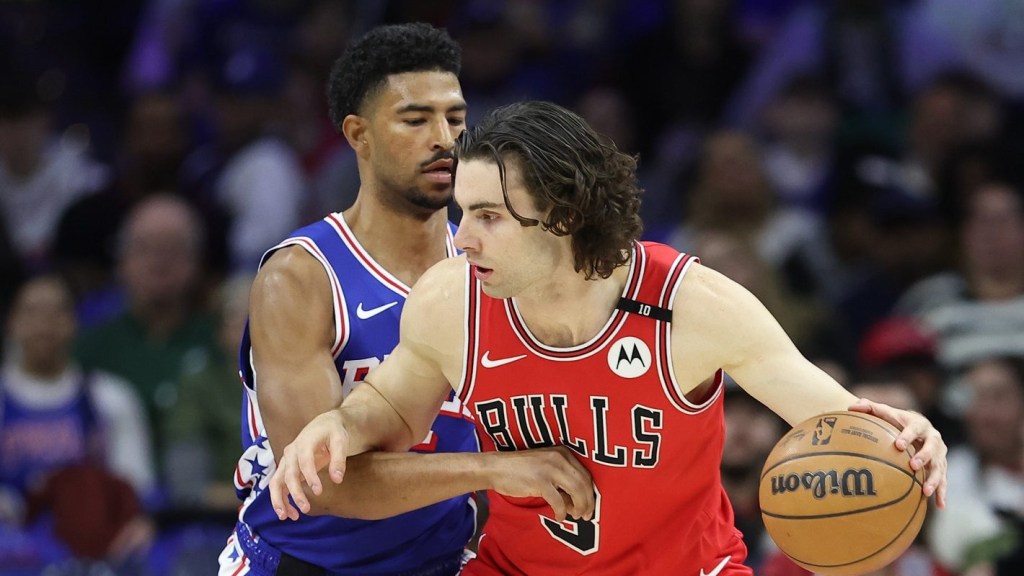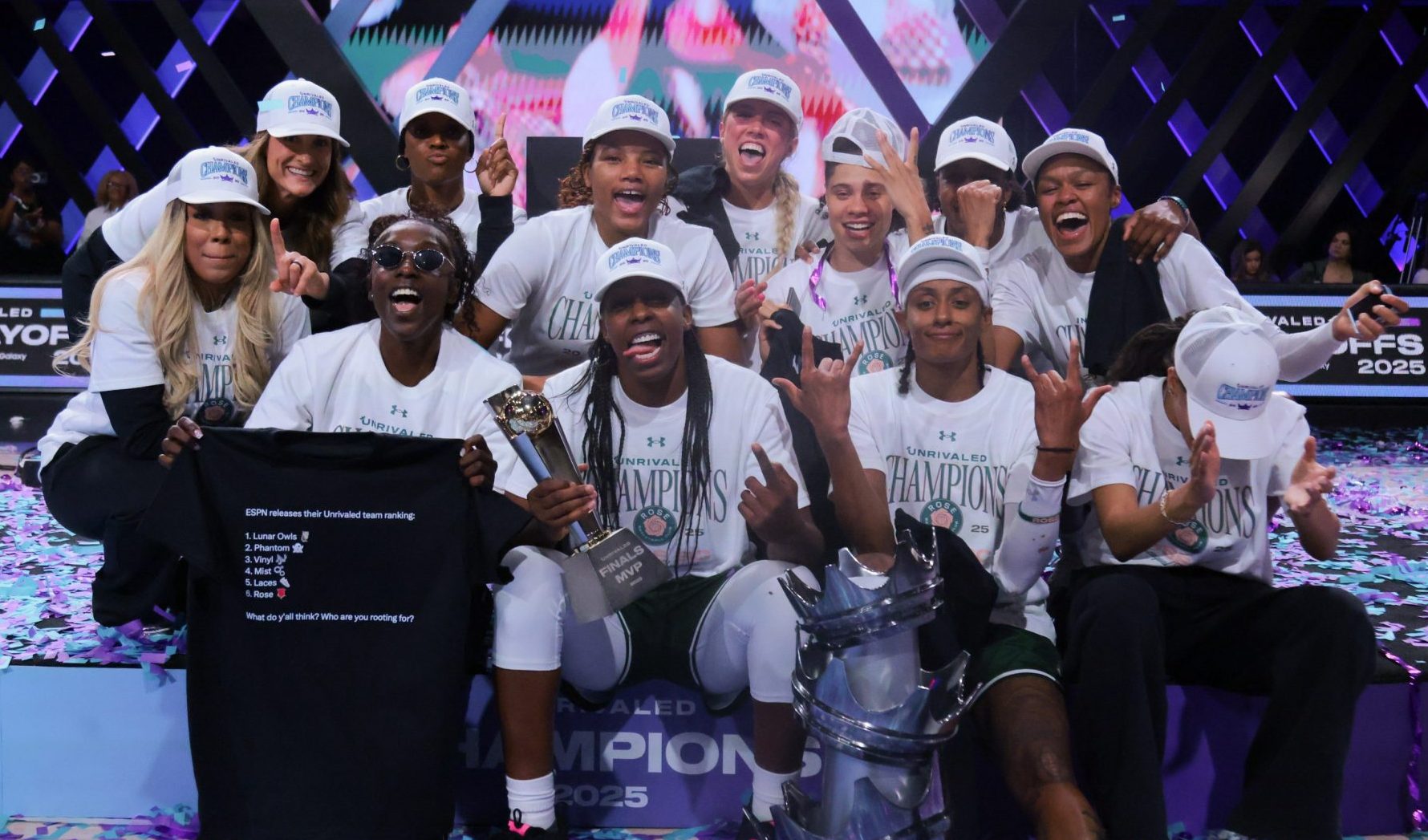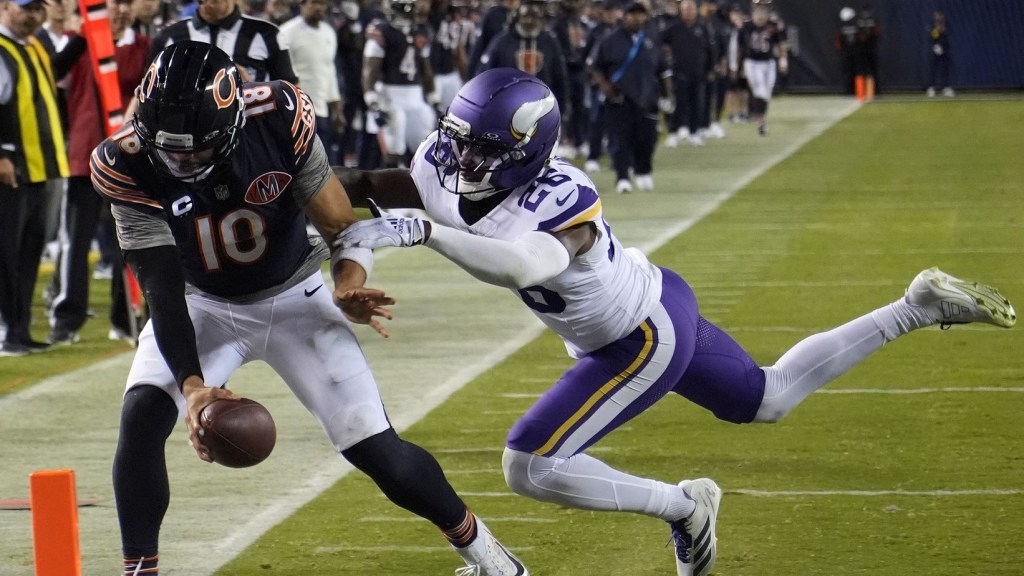Afternoon Edition |
September 10, 2025 |
|
|
The NCAA and its conferences are pushing the SCORE Act, which would solidify college athletes as amateurs and limit their control over compensation, transfer status, and eligibility. Ahead of a congressional vote next week, lobbyists are working overtime, with the Congressional Black Caucus seen as a key target.
—Amanda Christovich, Eric Fisher, Colin Salao, and David Rumsey
|
|
|

College sports has experienced its own episode of House of Cards this week on Capitol Hill.
Ahead of a potential vote to pass the SCORE Act in the House of Representatives next week, House Majority Leader Steve Scalise (R., La.), as well as other House Republicans and NCAA/conference lobbyists, have been pushing hard to ensure they have enough votes to pass the bill, sources tell Front Office Sports. It’s unclear at this point whether the SCORE Act would pass the House.
“Not just Scalise, but the entire lobbying apparatus … is working overdrive,” one congressional aide tells FOS.
Since 2019, the NCAA and power conferences (including the Pac-12) have spent millions on Capitol Hill lobbying for a law that would allow them to keep college athletes’ status as amateurs and win back control to set and enforce rules in college sports. The overarching goal of the NCAA and conferences is to gain antitrust protections that would allow them and the new College Sports Commission to enforce rules around compensation, transfers, and eligibility without fear of lawsuits. They also seek a federal standard for NIL (name, image, and likeness) deals overriding state laws, and a guarantee that athletes would never be university employees.
The SCORE Act satisfies those demands. It also puts in place new regulations for agents, minimums for how many sports programs a school must sponsor, and codifies the revenue-sharing terms of the House v. NCAA settlement. The bill made it through two committee markups along party lines before the August recess.
Sources FOS spoke with have given conflicting information regarding whether the SCORE Act will get enough votes to pass the House (the bill needs 218 votes to move to a Senate vote). The Republicans currently have a six-seat majority (219 Republicans, 213 Democrats including newly elected Virginia Democrat James Walkinshaw, and three vacancies) and could theoretically pass the bill on party lines.
But on Sunday night, several House Republicans, including Rep. Chip Roy (R., Texas) and Rep. Wesley Hunt (R., Texas), criticized the SCORE Act on social media. They appeared to be following the lead of Texas Tech Board of Regents chair and oil billionaire Cody Campbell—a friend of President Donald Trump—who has launched a lobbying blitz of his own.
Campbell told FOS that he views the SCORE Act as a positive first step in college sports policy reform, but says it’s an incomplete solution. He believes the NCAA shouldn’t be granted an antitrust exemption, and, in fact, says another governing body should take its place. In both interviews and ads during college football broadcasts, Campbell has argued that the Sports Broadcasting Act of 1961 should be amended so that all FBS schools could pool their football media rights, using the extra earnings to fund women’s sports and Olympic sports.
It’s still unclear how the Texas representatives will come down on the SCORE Act. “This bill needs work,” Rep. Lance Gooden (R., Texas) posted Sunday night. “Looking forward to thoughtful debate and a finished product we can all be proud of.” Gooden is listed as one of the cosponsors of the legislation. His office did not respond to a request for comment clarifying his position.
Rep. Michael Baumgartner (R., Wash.) also criticized the bill—but he has already been on record saying he doesn’t endorse it.
Two Democrats who signed onto the original bill as cosponsors in July, Rep. Janelle Bynum (D., Ore.) and Rep. Shomari Figures (D., Ala.), would presumably vote for it. Since then, three other Democrats have signed on as well.
One place the pro-SCORE Act lobby is looking for votes, one source tells FOS: the Congressional Black Caucus. Two conferences representing historically black colleges and universities—the Mid-Eastern Athletic Conference and the Southwestern Athletic Conference—have been lobbying CBC members to vote yes, the source says.
CBC chair Rep. Yvette Clarke (D., N.Y.) has come out against the SCORE Act. The National Urban League, a civil rights group with influence in the CBC, has also come out against the bill. (The two conferences did not respond to a request for comment, nor did Clarke’s office.)
|
|
|
|

|
Syndication: The Courier-Journal
|
Sling TV is once more in the legal crosshairs of a bigger media entity, as TNT Sports parent company Warner Bros. Discovery has filed a lawsuit challenging a new $4.99 “Day Pass” offering short-term access to a set of channels that includes TNT and TBS.
WBD is alleging a breach of contract in an existing carriage agreement and is seeking an injunction blocking the Sling TV effort. The legal action is the second lawsuit against Sling TV parent company Dish Network in as many weeks, as Disney also sued along similar grounds.
“The passes fundamentally disrupt [the] industry-standard model by allowing customers to purchase access to the most sought-after programming, such as major sports events, essentially a la carte for a fraction of the cost that the consumer would have to pay to watch the event on a pay-per-view basis,” WBD said in its filing. “This inherently devalues the programming as a whole and harms programmers’ goodwill with consumers. The passes also threaten to disrupt programmers’ relationships with their other distribution partners.”
To that end, WBD said it has already heard from other carriers wanting to offer similar short-term packages.
Sling TV, as it did after the Disney filing, responded defiantly, saying that the new day passes are a deliberate pro-consumer move on its part. In addition to the 24-hour access block, Sling TV is also offering a weekend option costing $9.99, and a weeklong one for $14.99.
“Sling TV has broken the mold of expensive, rigid bundles with flexible Sling Orange Day, Weekend, and Week Pass subscriptions—pay-as-you-want instant access,” the company said in a statement. “This customer-first model challenges the old guard’s outdated pricing playbook, exposing their dependence on market power and resistance to change.”
A key underlying question embedded in the disputes is what might happen if Sling TV were to prevail. WBD claims that such a path will ultimately fail to produce sufficient revenue to keep its current level of programming intact.
“Programmers depend on monthly subscriptions to finance, acquire, develop, produce, and program hundreds of different programs for their 24/7 network programming,” WBD said in the complaint.
Like the prior Disney suit, WBD’s action was filed in the U.S. District Court for the Southern District of New York.
Time of Transition
As Disney is certainly looking to protect the new direct-to-consumer version of ESPN, WBD has its own interests to preserve as well.
The company is in the midst of splitting into two separate entities, with the majority of sports assets heading to the forthcoming Discovery Global by mid-2026. Gunnar Wiedenfels, who will lead Discovery Global, said last week that TNT Sports is developing a new streaming app as its content will ultimately depart from HBO Max, which is heading to Warner Bros. in the corporate separation.
The dispute is also building as TNT Sports is about to begin coverage of the 2025 MLB playoffs and the 2025–26 NHL season, and is continuing its growing activities in college sports.
|
|
|
|

|
Bill Streicher-Imagn Images
|
The Clippers’ alleged salary-cap circumvention has populated the past week of the NBA offseason, but within the same time frame, two of the four remaining restricted free agents found resolutions with their teams.
Josh Giddey agreed to a four-year, $100 million deal ($25 million average annual value) with the Bulls on Wednesday, according to ESPN’s Shams Charania. The deal falls right in between Chicago’s original offer of four years, $80 million ($20 million per year) and the $30 million per year that NBA insider Jake Fischer reported the 22-year-old was hoping to secure.
Chicago, which extended head coach Billy Donovan in July, has only about $75 million on the books for the 2026–27 season—though the 2027 offseason may have marquee free agents, including Giannis Antetokounmpo, Trae Young, and Donovan Mitchell.
The news about Giddey comes less than a week after Cam Thomas, another restricted free agent, and the Nets failed to agree on a long-term contract. The 23-year-old signed a one-year, $6 million qualifying offer with the Nets, which will make him an unrestricted free agent next year.
The remaining RFA dominoes are Warriors forward Jonathan Kuminga and Sixers wing Quentin Grimes.
Kuminga’s situation differs from that of Giddey, as reports have indicated there was mutual interest between Chicago and Giddey to be tied together for the long term. The Warriors have given Kuminga two options, per ESPN’s Anthony Slater: Sign the one-year qualifying offer or sign a two-year, $45 million deal with a team option in the second year. Both are short-term options, but the latter makes it easy to trade the No. 7 pick in the 2021 draft.
The 22-year-old wants a three-year, $82 million deal.
The stalemate with Kuminga has left the aging Warriors as the offseason’s quietest team. After losing Kevon Looney, Golden State has yet to make any roster moves outside of signing Taevion Kinsey to an Exhibit 10 contract. The Warriors have been linked to other free agents, including 39-year-old Al Horford, who remains an unrestricted free agent.
The 25-year-old Grimes, who had a strong finish to the season after the Sixers acquired him from the Mavericks, is reportedly seeking a deal in the ballpark of $20 million to $25 million per year. However, Philadelphia has a deep backcourt rotation with Tyrese Maxey, a healthy Jared McCain, and recently drafted VJ Edgecombe, making it more difficult for them to invest in Grimes.
Fischer said last week that Grimes “allegedly has the chance to take the qualifying offer” from the Sixers, which, like Thomas, will make him an unrestricted free agent next year.
|
|
|
|

|
The NFL delivered some of its best ratings ever for Week 1, despite going head-to-head against the US Open final—which also had its best TV performance in 10 years and likely its best attendance ever. FOS newsletter writer Eric Fisher gives context to the big numbers in both football and tennis, and what it means for other major sports trying to go up against the NFL.
Plus, Front Office Sports Today is joined by Owen Hanson, also known as the “Cocaine Quarterback,” who went from being a walk-on for Lincoln Riley’s champion USC team to a kingpin for the Mexican drug cartel. Hanson opens up with his story and explains how NIL could’ve changed everything.
Watch the full episode here.
|
|

|
Unrivaled ⬆ The women’s 3-on-3 basketball league announced Wednesday that it is expanding to eight teams, adding two teams for its 2026 season. The league had previously said it would add the teams by 2027, but pushed it up a year. Unrivaled is also adding a fourth night of games, from three last year on TNT and truTV (Monday, Friday, Saturday). The news comes just days after the league announced a Series B investment round that valued it at $340 million.
College football TV ratings ⬆ Total viewing of college football broadcasts is up +25% compared to last season across all networks through Week 2, according to data cited by Fox Sports executive Mike Mulvihill. The most-watched game of the season is the blockbuster Ohio State–Texas Week 1 matchup that drew 16.62 million viewers. The biggest Week 2 audience was ABC’s 9.7 million viewers for Oklahoma-Michigan.
Pinehurst ⬆ The North Carolina resort that’s home to the iconic No. 2 course has opened a new Titleist Shop, marking the golf ball and equipment manufacturer’s first U.S. retail location. The new center figures to be a main attraction for golfers, as it sits next to the driving range and main clubhouse.
Xavier Gipson ⬇ The Jets cut the wide receiver on Wednesday, days after he fumbled a kick return in the fourth quarter that turned into a go-ahead touchdown for the Steelers. “We can’t have turnovers. … You will not be on the field with this team if you’re going to cause us to lose games,” Jets coach Aaron Glenn said Sunday after the loss. Gipson signed with the Jets in 2023 after going undrafted out of Stephen F. Austin State University.
|
|
- Nebraska tight end Luke Lindenmeyer proposed to his girlfriend, Kailyn, on the field after winning a game against Akron. Take a look.
- Michigan’s T-34 Mentor pilots show the behind-the-scenes of a national anthem flyover at the Big House. Watch it here.
- Larry Gies has committed $100 million to Fighting Illini Athletics, the largest donation in program history. The university will rename its football stadium as the Gies Memorial Stadium in honor of his father, U.S. Army veteran Larry Gies Sr.
|
|
 | A survey found 85% of respondents believe sports event contracts are gambling. |
|
|









